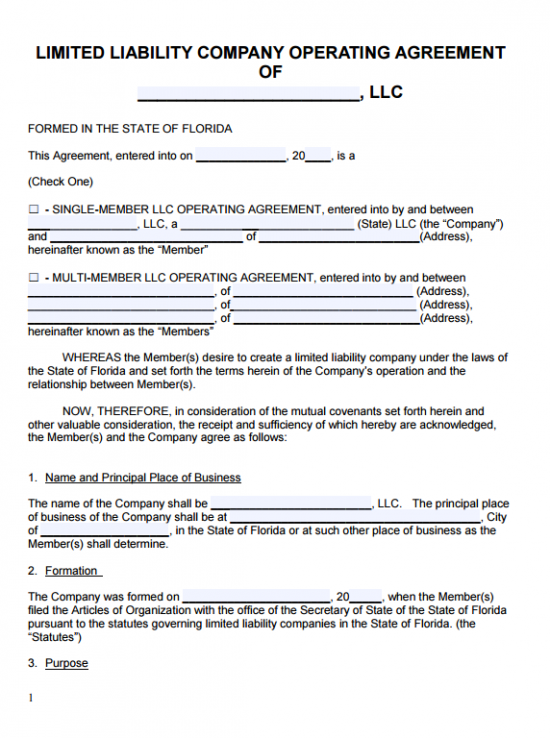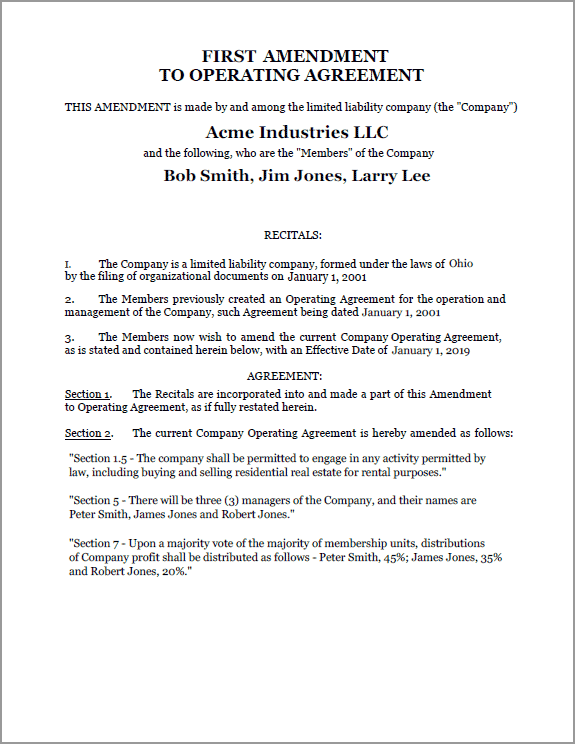


- #SAMPLE MANAGER AGREEMENT FOR LLC IN GEORGIA CODE#
- #SAMPLE MANAGER AGREEMENT FOR LLC IN GEORGIA TRIAL#
This “special injury” exception is triggered when the shareholder allegedly was “injured in a way which is different from the other shareholders or independently of the corporation to have standing to assert a direct action.” Practice’s allegations stated that the manager gave everyone their initial contributions back – except Practice. While claims like the one Practice made against this manager might generally qualify as derivative, an exception applied in this situation that allowed Practice to proceed. Practice also won a reversal against the manager. Based upon this statutory requirement, LLCs are bound whether they sign the contract or not. In other words, whether or not the LLC signed the operating agreement was completely immaterial to the question of whether or not it was potentially liable for alleged breaches that harmed Practice. Specifically, Subsection 14-11-101(18) states that a “limited liability company is not required to execute its operating agreement and, except as otherwise provided in the operating agreement, is bound by its operating agreement whether or not the limited liability company executes the operating agreement.”
#SAMPLE MANAGER AGREEMENT FOR LLC IN GEORGIA CODE#
The key to Practice’s success lay within a Definitions statute in the Chapter of the Georgia code governing LLCs. That court concluded that Practice could proceed against the LLC. Practice, however, won a reversal in the Court of Appeals.
#SAMPLE MANAGER AGREEMENT FOR LLC IN GEORGIA TRIAL#
The plaintiff lost in the trial court, meaning that the trial judge not only determined that the claim against the manager was actually a derivative action but also ruled that the LLC was not bound by its own operating agreement because the LLC itself was not a signer of that document. The LLC sought dismissal on the basis that it was not a party to the operating agreement, meaning that it couldn’t possibly be liable for any breach of that agreement. The manager asked the trial judge to dismiss the case against him on the ground that it was a derivative claim. This led Practice to sue both the LLC and the manager for both breach of contract and breach of fiduciary duty. The LLC made distributions to all of its members, except for Practice. In 2013, all of the initial capital contributions were returned to the original members, except for Practice. He refused to allow Practice to continue casting two votes and refused to allow any amendment to the governing documents with regarding to voting procedures. Then, in 2013, Clark became the LLC’s manager. Eventually, due to a conflict, counsel advised the parties to combine the ownership interest of Richard and Helen into one new LLC called Practice Benefits LLC.įrom 2010 to 2013, the LLC members allowed four votes to be cast – one by Marty, one by Robert, and two by Practice.

The LLC’s operating agreement called for each of its four individual owners, Richard, Helen, Marty, and Robert, to have one vote, either directly or through the owner’s designated entity. Four owners of the business established an LLC. The case that prompted the ruling centered around a business providing outsourced payroll and human resources solutions to medical practices. One example in which this was true occurred recently when the Georgia Court of Appeals issued a ruling re-affirming that LLCs are bound by their operating agreements, regardless of whether the LLC signed the agreement or not. This is one reason why, if you are involved in a business dispute, it pays to have an experienced Georgia business litigation attorney working on your behalf. Sometimes, some things that might seem straightforward still require considerable litigation to resolve.


 0 kommentar(er)
0 kommentar(er)
